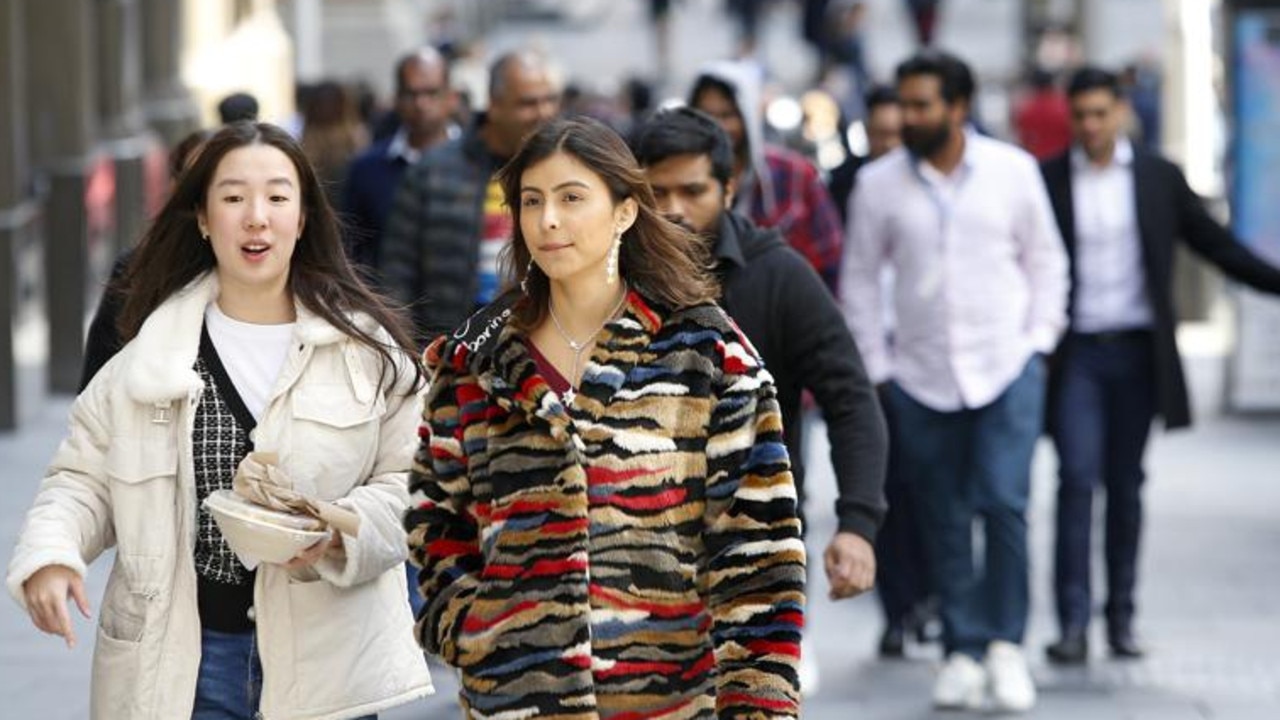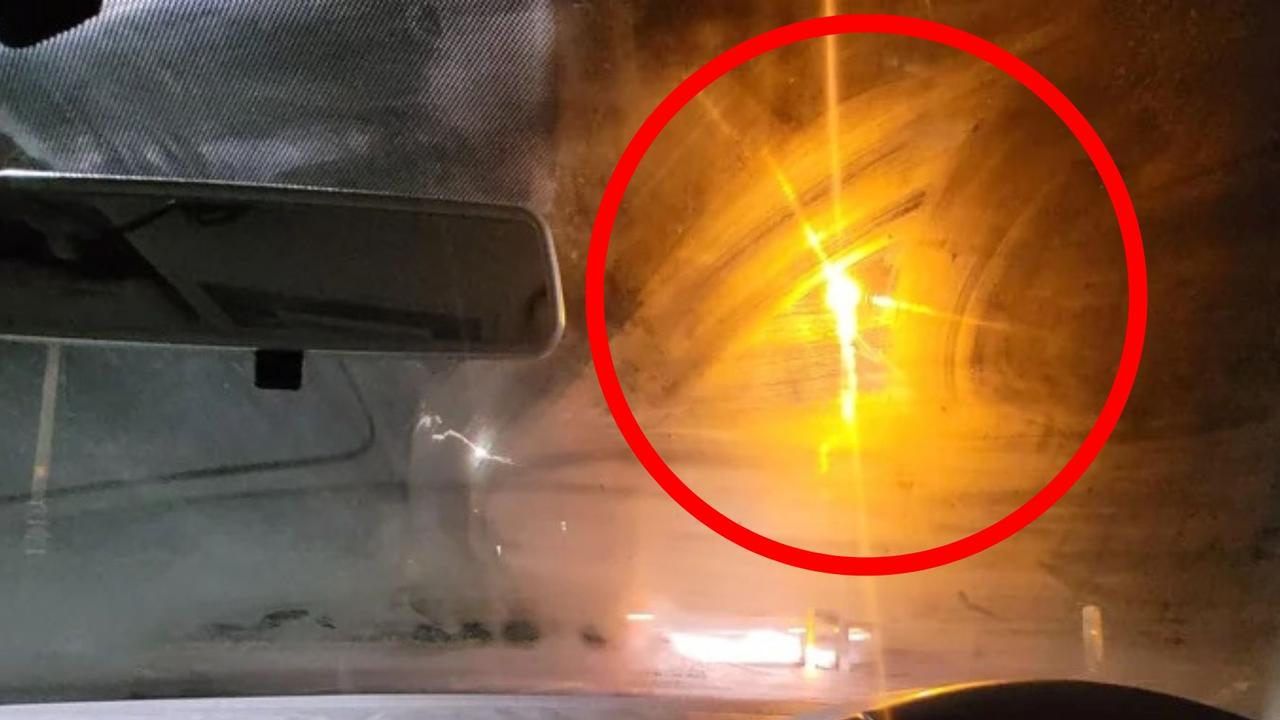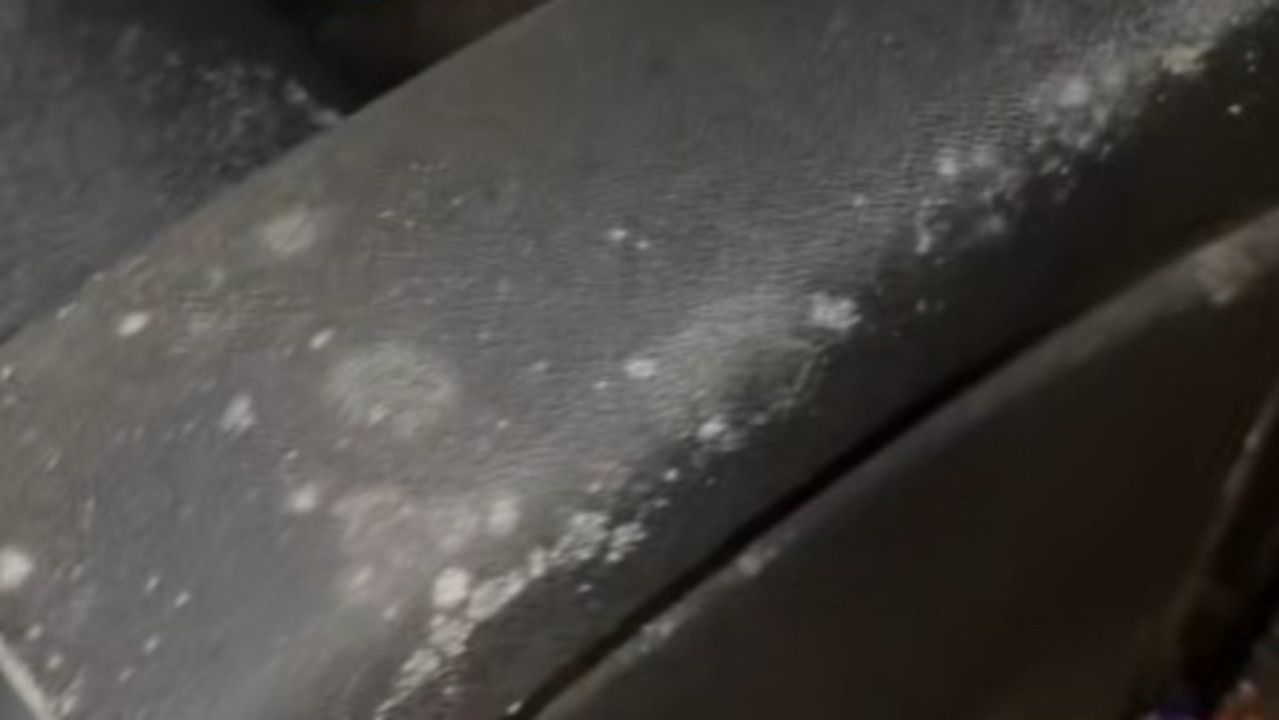Coronavirus: Donald Trump predicts vaccine will be ready ‘by end of this year’
Previous estimates have suggested it will take 12-18 months to develop a coronavirus vaccine. Now we’re being told one may be ready sooner.
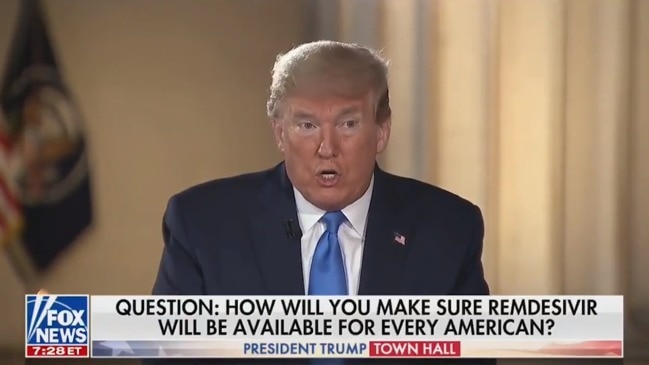
US President Donald Trump says he is “very confident” a coronavirus vaccine will be ready by the end of this year, faster than most experts have predicted.
Mr Trump appeared on Fox News for a virtual town hall today, where he fielded a varied range of questions about the pandemic. At one point, unprompted, he brought up the race to develop a vaccine.
“We are very confident that we’re going to have a vaccine by the end of this year,” the President said.
“By the end of this year?” asked host Bret Baier.
“We think we’ll have a vaccine by the end of this year, and we’re pushing very hard,” Mr Trump confirmed.
Most estimates have placed the time frame for developing a vaccine at 12-18 months, which would push the effort into next year.
“You know, we’re building supply lines. We don’t even have the final vaccine.,” Mr Trump continued.
“Johnson & Johnson, if you look at Johnson & Johnson, is doing it. We have many companies, are I think close, because I meet with the heads of them and I find it a very interesting subject.
“Because it’s so important. But I think we’ll have a vaccine by the end of the year. We’re also pushing it. We’re doing things at the FDA (Food and Drug Administration) that’s never happened before.”
Johnson & Johnson is one of several pharmaceutical companies currently trying to develop an effective vaccine. It has said its first hypothetical batch will be available no sooner than 2021.
A few other companies, such as BioNTech and Pfizer, have indicated they might be able to start supplying a vaccine before the end of the year. That time frame depends on the results of clinical trials.
Mr Trump said he did not care who won the race, and would not be phased if another country managed to develop a vaccine before the United States.
“I really just want to get a vaccine that works,” he said.
RELATED: Early tests of Queensland virus vaccine show promise
RELATED: What is the world’s ‘Plan C’?
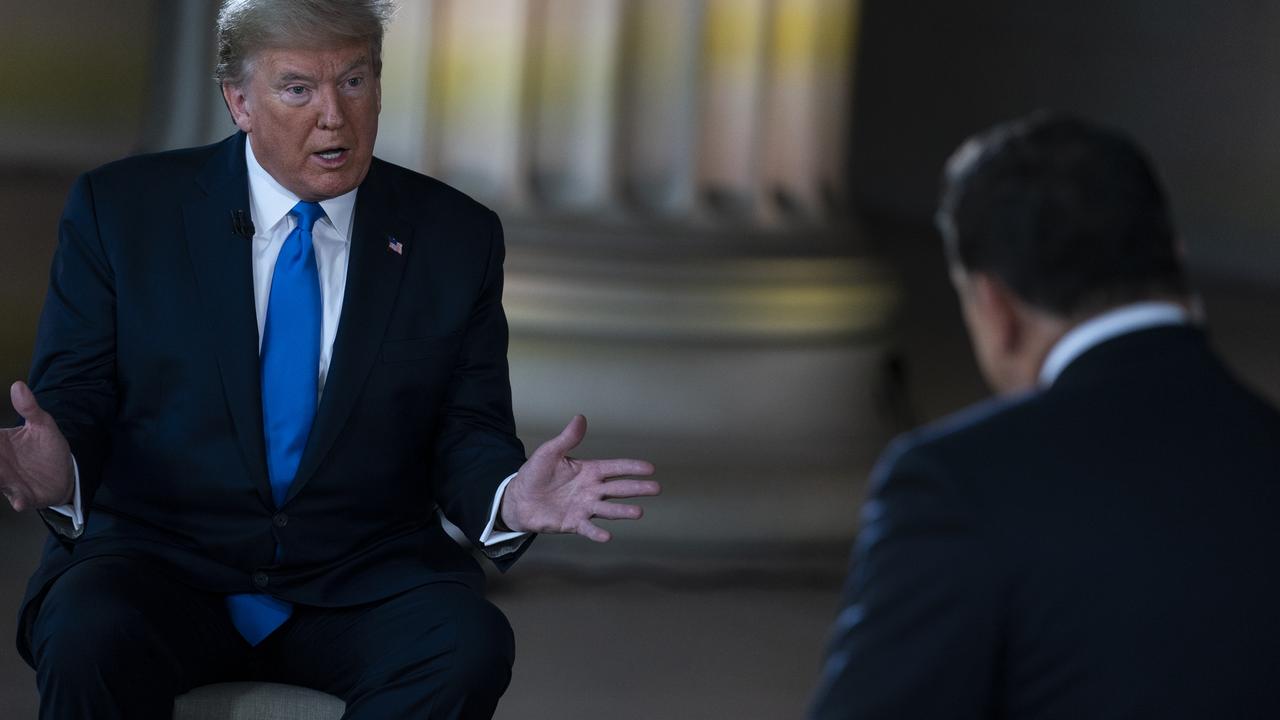
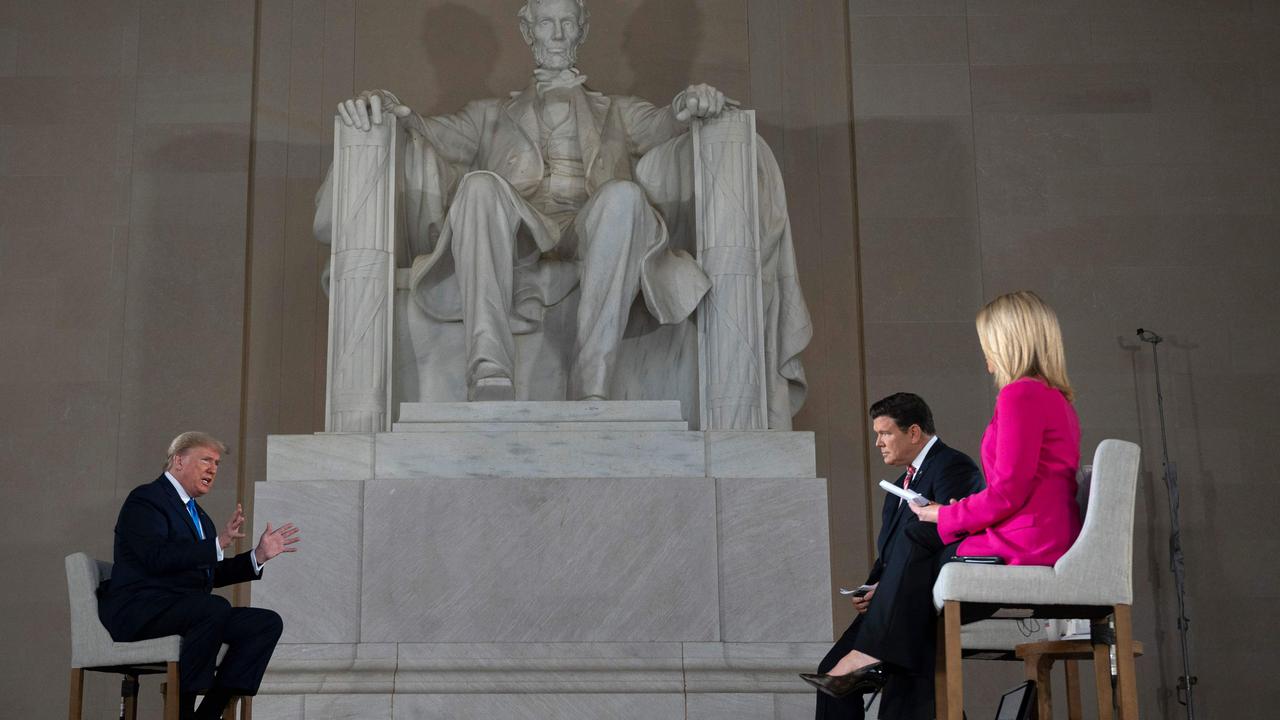
Mr Trump’s estimate might sound overly optimistic, but it is not too far off the assessment of his top coronavirus adviser, infectious disease expert Dr Anthony Fauci.
Last week Dr Fauci told NBC’s Today program it was possible a vaccine could be ready for distribution by January of next year.
“We want to go quickly, but we want to make sure it’s safe and it’s effective,” he said.
“I think that is doable if things fall in the right place.
“Remember, go back in time, I was saying in January it would be a year to 18 months. So January is a year. So it isn’t that much from what I had originally said.”
The effort to find a vaccine as quickly as possible – and to create enough doses to distribute widely – does come with some risks.
Most significantly, to have one ready as soon as Mr Trump has indicated, pharmaceutical companies would need to start mass producing their vaccines before the clinical trials were even complete.
“If we’re going to start ramping up production with the companies involved, you do that at risk,” Dr Fauci said.
“In other words, you don’t wait until you get an answer before you start manufacturing. You, at risk, proactively start making it, assuming that it’s going to work. And if it does, then you can scale up and hopefully get to that timeline.”
At a media conference today, Australia’s federal Science Minister Karen Andrews was asked when a vaccine might be ready. She gave a more conservative estimate.
“It’s possible we’ll have a vaccine in the next 10-15 months,” Ms Andrews said.
But she did add it was “entirely possible” there could be a vaccine by “the end of this year or early next year”.
This is all assuming an effective vaccine is found at all, which is not necessarily a given.
RELATED: Why there might never be a coronavirus vaccine
Last month, one of Australia’s leading experts on the subject told news.com.au there might never be one.
“The wrong vaccine could make things worse, so we have to be very selective about what part of the virus we want to attack,” said Professor Ian Frazer.
Prof Frazer is the immunologist who co-invented the human papilloma virus vaccine, which prevents cervical cancer.
“At the moment we don’t know how to make a coronavirus vaccine work. That’s why there are 100 vaccines under testing, using every conceivable approach,” he said.
“We don’t know if any of them will work.”
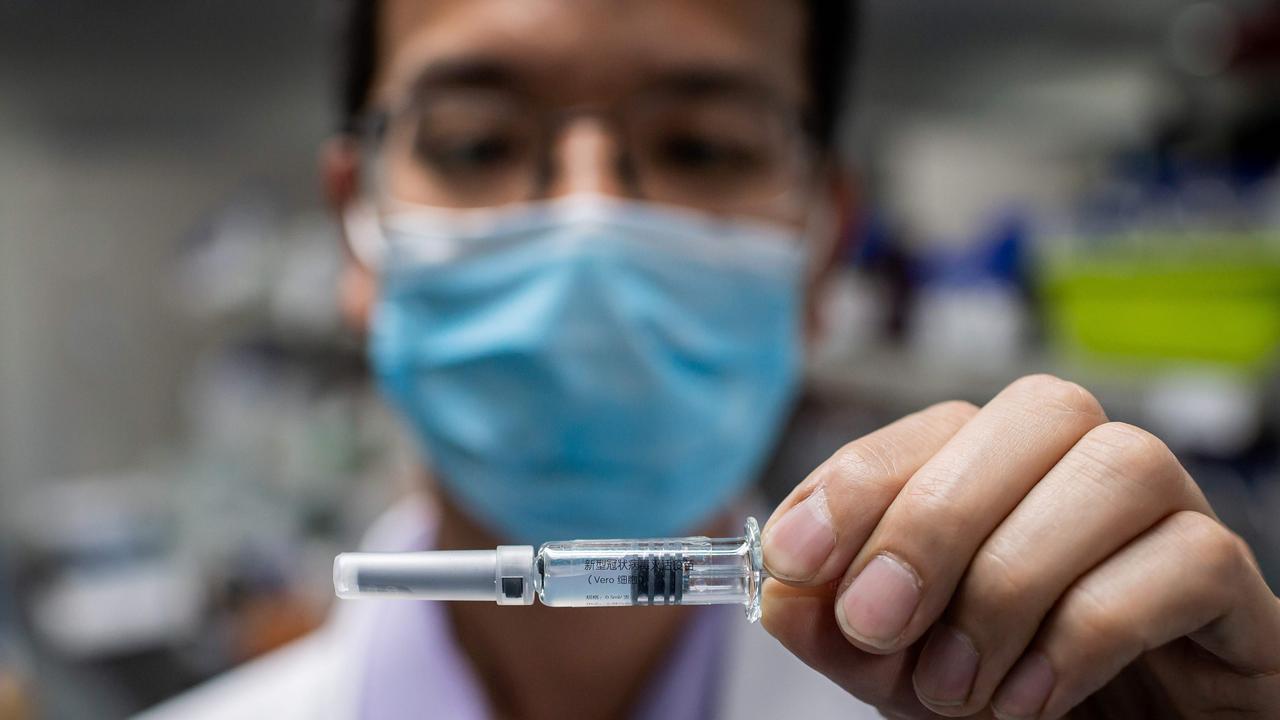
Mr Trump’s town hall covered other subjects as well. One questioner, a retired nurse named Carolyn Perkins, thanked the President for his “dedication” to the United States, but implored him to consider toning down his rhetoric.
“The question I have is about your manner of presentation. Why do you use descriptive words that could be classified as bullying, and why do you not directly answer the questions asked from the press, but instead speak of past successes and generally ramble?” Ms Perkins asked.
“Please let go of those behaviours that are turning people away from you.”
The President answered by drawing on the setting of the event, which was rather bizarrely held inside Washington D.C.’s Lincoln Memorial.
“Look, I am greeted with a hostile press, the likes of which no president has ever seen. The closest will be that gentleman up there,” Mr Trump said, motioning towards the statue of Abraham Lincoln.
“They always say nobody got treated worse than Lincoln. I believe I am treated worse,” he continued.
“You see those press conferences. They come at me with questions that are disgraceful. Their manner of presentation and their words. I feel if I was kind to them, I would be walked off the stage.
“I mean, they come at you with the most horrible, horrendous, biased questions. You see it. Ninety-four to 95 per cent of the press is hostile.”
At the risk of sounding hostile, I should point out that Abraham Lincoln, who was president during the American Civil War and suffered no small amount of criticism, was assassinated at the age of 56. So no, Mr Trump has not been treated worse than him.
Mr Trump also addressed the United States’ ongoing spat with China over the origins of the virus. He seemed to walk back comments from last week, in which he suggested China might have released the virus from a laboratory in Wuhan “on purpose”.
RELATED: Trump flirts with theory that China released virus ‘on purpose’
“I think they made a mistake and didn’t want to admit it,” he said today.
“My opinion is they made a mistake. They tried to cover it, they tried to put it out. It’s like a fire. You know, it’s really like trying to put out a fire. They couldn’t put out the fire.”
Earlier today, Secretary of State Mike Pompeo told US ABC’s This Week there was “enormous evidence” that the virus originated from the lab.
RELATED: ‘Enormous evidence’ to support coronavirus theory
“I can tell you that there is a significant amount of evidence that this came from that laboratory in Wuhan,” Mr Pompeo said.
He declined to describe the evidence in question, which has not emerged publicly.
“Here’s what’s important. The Chinese Communist Party had the opportunity to prevent all the calamity that has befallen the world,” he said.
“This is an enormous crisis, created by the fact that the Chinese Communist Party reverted to form, reverted to the kinds of disinformation and concealment that authoritarian regimes do.
“Had those scientists been operating in America, they would have put this out, there would have been an exchange of ideas and we would have quickly identified the kinds of things that needed to be done in response.
“I think the whole world is united in saying that China brought this virus to the world.”


